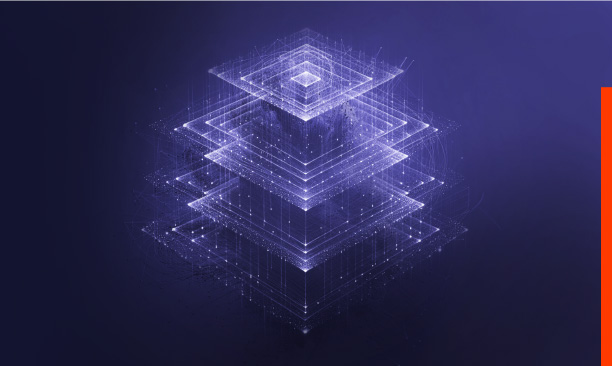By Gravity Stack Staff
In the latest episode of the ZALD podcast, Gravity Stack’s own Charlie Connor sat down with host Zach Abramowitz to talk about legal tech’s rapidly changing landscape—and what it means for buyers, builders, and believers in AI-first workflows.
Charlie, a longtime entrepreneur and former co-founder of Heretik (acquired by Relativity in 2022), now plays a key role at Gravity Stack helping clients navigate the new AI terrain. This candid conversation covered everything from contract lifecycle management’s identity crisis to the rise of AI agents and the generational shift in legal software development.
If you’ve been wondering how to separate the hype from the high-impact, this is a conversation worth unpacking. Here are a few takeaways:
Timing Is Everything (Especially in Legaltech)
Charlie reflects on the fortuitous timing of Heretik’s acquisition. “We spent so much time indexing documents from EDGAR,” he says, “and now that’s just a feature in Harvey.” In the world of generative AI, foundational infrastructure that once required years to build can now be spun up in weeks.
In hindsight, Heretik may have sold at the perfect time—before the explosion of gen AI made legacy architecture feel obsolete overnight. Charlie and Zach agree: for many companies that launched before 2023, technical debt is a real threat to innovation.
The CLM Is Dead. Long Live the AI Toolkit.
Charlie doesn’t mince words: “The CLM is a myth now.” The concept of a single platform that solves every contract problem—from creation to execution to search—isn’t holding up in an era when generative AI can deliver flexible, modular solutions tailored to individual pain points.
Rather than trying to force workflows into monolithic systems, Charlie argues for a pragmatic, data-driven toolkit approach. And clients are responding. “It’s okay to admit your contracts are sitting in a random folder,” he says. “That’s where everybody is. The goal is to move forward without forgetting the past.”
Meet the New Legal Tech Founder
One of the most exciting shifts Charlie is seeing? The caliber of today’s legal tech entrepreneurs. “These aren’t just people with ideas,” he says. “You’re seeing teams of PhDs, engineers from Google, founders from MIT and Stanford—people who can demo real product on the spot.”
Startups like NewCode, which Charlie praises as “one of the best AI presentations I’ve ever seen,” are proving that AI-native legal tools aren’t just more flexible—they’re more transparent, more explainable, and more performant. Founders are not just showing results; they’re showing how the sausage is made, and in real time.
AI Is the Best Employee (and Maybe the Best Trainer)
Charlie shares that his internal Slack now includes real-time comparisons between top AI tools—Harvey, Eversource, Relativity AI, and even raw GPT-4—and how each responds to a client’s documents. “You don’t have to pick the winner,” he says. “You just need to understand what’s available and choose the right path.”
He also describes generative AI as “your best friend who never judges you”—a learning partner that’s changing how junior lawyers are trained. “Today’s associates don’t need to ask basic questions out loud. They can go to ChatGPT and learn faster than we ever could.”
The Real Threat to Legacy Tools is User Expectations.
What’s going to change the game isn’t necessarily a single competitor—it’s the raised expectations of legal users. “You used to be able to sell decks and slides,” Charlie says. “Now you need a working product. And you’d better be able to export that data to Excel.”
From Relativity to contract AI to regulatory analysis, users now expect transparency, speed, and context. And if one product doesn’t offer it, a dozen others might. That’s why Charlie and the Gravity Stack team focus less on picking winners and more on arming clients with the information they need to make confident decisions in real time.
What’s Next? A New Kind of Due Diligence
Charlie closes with a compelling prediction: in the future, due diligence will evolve from static data rooms to dynamic, AI-powered explorations. Buyers will expect not only documents—but summaries, SLA flags, and risk markers—generated in real-time by LLMs.
“You’re not just going to get asked ‘Do you have a data room?’” he says. “You’re going to get asked ‘Are you diligence-ready?’ Can your documents be summarized? Can the buyer’s tools engage with your infrastructure?”
For companies preparing for an exit, this is more than a nice-to-have. It may soon be table stakes.
Gravity Stack’s Role
At Gravity Stack, we’re not here to pick one tool to rule them all. We’re here to run the real tests, validate performance across models, and help our clients explain what matters, whether that’s up the chain, across the table, or to the boardroom.
Whether you’re evaluating a CLM replacement, planning your next AI use case, or just trying to keep up with the speed of change, we’re building the playbook and the partnerships that will help legal teams move forward with confidence.
Listen to the full podcast episode here.






